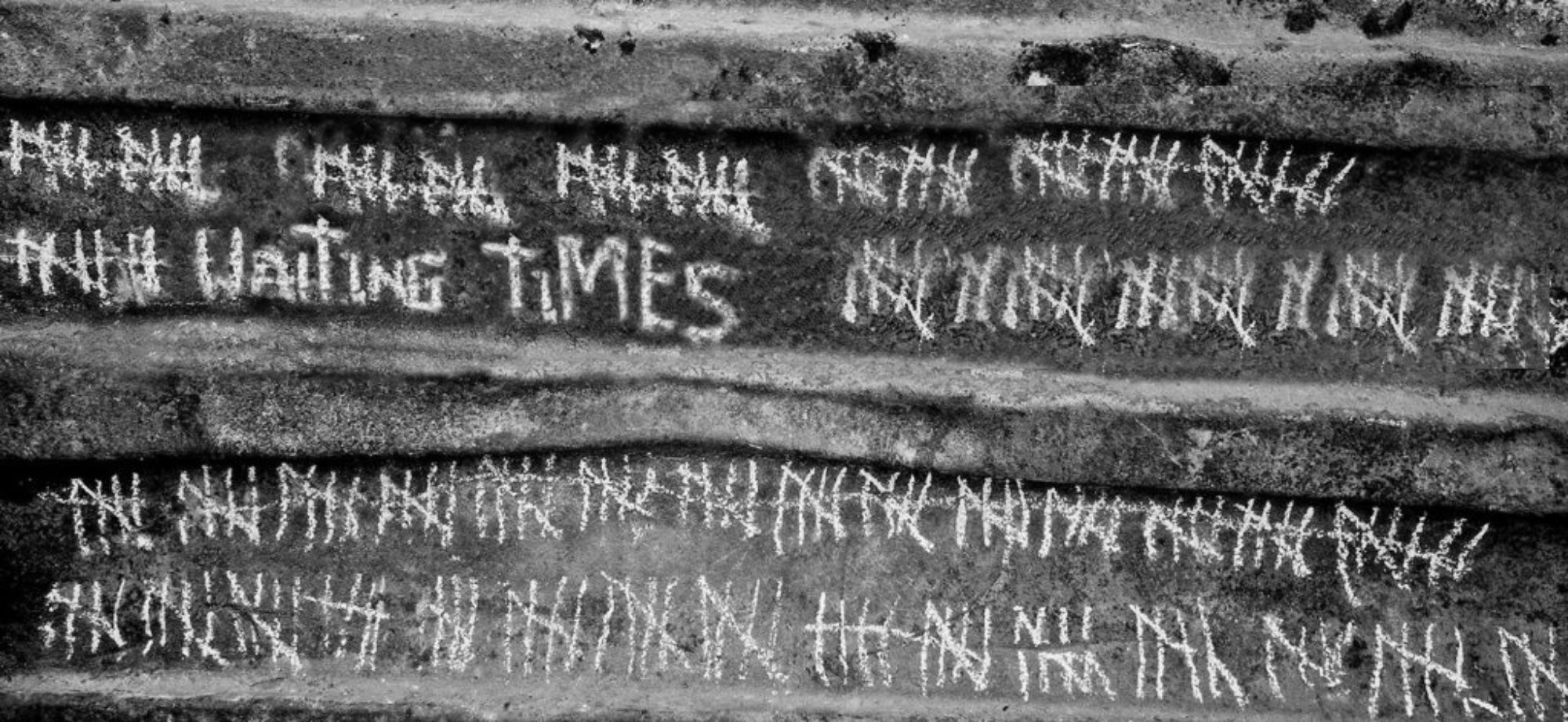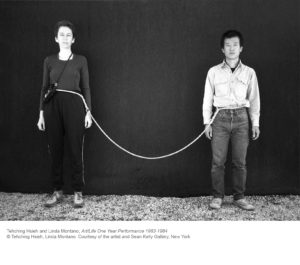Ana Minozzo reviews the first edition of an international online conference that explored socially engaged psychoanalytic practices from across the world.
International Conference: Fiction in the Age of Globalization, 22 July 2021 9.15 am – 6.10 pm (CET)
On Thursday 22 July 2021 12-1 pm (CET)/11 am-12 pm (UK) Professor Laura Salisbury will give a keynote paper “On Not Being Able to Read: Doomscrolling and Anxiety in Pandemic Times” at the International Conference: Fiction in the Age of Globalization (Universität Tübingen, Germany, online)
For information and program click here.
For (free) registration and the Zoom link please get in touch at arya.aryan@uni-tuebingen.de
24 July, 2:00 pm – 25 July, 5:00 pm. Psychoanalysis for the People: Free Clinics and the Social Mission of Psychoanalysis Conference

*Discount tickets are available for Essex students and staff. For them, the conference cost is £25 for the whole event. You can access the ticket by going to the conference page, clicking the ‘Book Now’ button, then clicking ‘enter promo code’ in the new window. Then enter the code ‘People25‘, without quotations marks, which brings up the new ticket option.
PART 2: DIVERSITY OF PRACTICES
In 1918 Freud placed the free clinic at the heart of psychoanalytic thought and practice, and predicted that out-patient clinics would be started where treatment would be free.
His speech resonated with many psychoanalysts of his time, who were invested in the social mission of psychoanalysis and who were the authors of significant institutional innovations, setting up free and low-cost clinics in Vienna, Berlin and Budapest.
This conference starts from the premise that the more recent progressive histories of psychoanalysis remain little known among therapeutic practitioners. They are rarely written about in the professional literature or taught on trainings. Yet there is a rich tradition of psychoanalytic theory and practice which engages with the realities of social inequality based on class, gender, poverty, racism, and other forms of marginalisation. We aim to explore and recognise these socially-minded psychoanalytic practices, drawing on the experience of psychoanalysts working in free and low cost clinics in very different contexts, from Latin America, Africa, North America and Europe, through to the UK National Health Service. We ask what “psychoanalysis for the people” might mean in our times, more than 100 years after Freud’s famous speech.
Speakers: Joanna Ryan, Lisa Baraitser, Raluca Soreanu, Barry Watt, Geraldine Ryan, Christine Diercks, Daniel Gaztambide, Peter Nevins, Graham Music, Martin Moore, Emiliano de Camargo David
Keynote lecture: Tales Ab’Sáber (A Social Clinic as an Immanent Development of Psychoanalytic Theory: The Open Psychoanalysis Clinic)
This is the second of two conferences exploring socially engaged psychoanalytic practice. The first part took place on 16th and 17th January 2021
Organised by: Raluca Soreanu & Joanna Ryan
Supported by: The Waiting Times Project (Wellcome Trust, PIs Lisa Baraitser and Laura Salisbury) and Balint Groups Project (Wellcome Trust, PI Raluca Soreanu).
Visit the Freud Museum to book tickets and see the full conference programme and abstracts.
![]()
9th July. Narrating Evidence. The second in a series of seminars about the uses and meanings of evidence in contemporary health contexts and beyond.
Can literary and oral narratives work as forms of evidence? What do they tell us that more objective, statistical or quantitative forms of data cannot? Lara Choksey and Kelichi Anucha discuss the interplay between literary narrative and health contexts.
Lara Choksey is postdoctoral fellow in the Wellcome Centre for Cultures and Environments of Health, University of Exeter working on a project which brings literary and cultural studies approaches to questions of heredity and environment in the ‘postgenomic’ era. Her monograph, Narrative in the Age of the Genome: Genetic Worlds (Bloomsbury), is out in February 2021.
Kelichi Anucha is a PhD candidate working on the relationship between time and care in end of life narratives, as part of the Wellcome Trust-funded research project Waiting Times. Her current project focuses on contemporary end-of-life literature and visual cultures, paying particular attention to representations of impeded, disrupted and alternate temporalities.
Fri, 9 July 2021
14:00 – 15:30 BST
Online. Book tickets here.
This event is part of Following the Evidence, a series of online seminar discussions about the uses and meanings of evidence in contemporary health contexts and beyond. Hosted by the Index of Evidence project, Wellcome Centre for Cultures and Environments of Health, each session focusses on a particular type of interaction with evidence, and the kinds of things we do with it: narrating it, waiting for it, and perhaps increasingly, doubting it. More details at: indexofevidence.org/events
Contesting Care: 30th June -1st July. Two days of talks, films, workshop discussion and artist presentations responding to the global crisis of care.
Few topics at present can be more pressing than care. Even before the current pandemic, a global care crisis had been identified by The International Labour Organization (ILO), which indicated that by 2030, the number of people needing care will reach 2.3 billion (Addati et al. 2018). Today, the majority of care practices are socially, culturally, economically and ecologically unsustainable, in large part because of a failure to ascribe sufficient value and recognition to the vast amounts of physical, emotional and intellectual labour required for the provision of care. This mounting crisis – its ecological and economic significance, and the widespread problems of precarity and hyper-exploitation – demands a fundamental reconsideration by researchers and policymakers.
Contesting Care is an online event that responds to this situation. It brings together interdisciplinary scholars from Duke University’s Revaluing Care Network (RCN), the University of Exeter’s Wellcome Centre for Cultures and Environments of Health, and other interested academics and artists. It will host a varied and innovative range of interventions, from conventional presentation panels to films, artist talks and workshops, fostering dialogue between creative and critical engagements with care, and seeking to develop concepts and methodologies that can be taken forward to address the global crisis of care. The aim of the event is to identify new research questions and collaborations, while producing an initial range of outputs for those currently thinking about care in their research and practice.
PROGRAMME
DAY 1
2-3 PM BST / 9-10 AM EST Care In Crisis 1
Speakers: David Richards (Exeter); Peter Kussin (Duke); Felicity Thomas (Exeter); LJ Brandli (Duke)
Chair: Des Fitzgerald (Exeter)
Break
3.30-4.30 PM BST / 10.30-11.30 AM EST Parallel Panels:
Communities and Values of Care 1
Speakers: Lorenza Ippolito (Brighton); Jocelyn Olcott (Duke); Joao Florencio (Exeter)
Chair: LJ Brandli (Duke)
Ageing and Care
Speakers: Iza Kavedzija (Exeter); Samia Akhter-Kahn (King’s College/Duke/RCGE); James Chappel (Duke); Anne Allison (Duke)
Chair: Liz Barry (Warwick)
Break
5-6 PM BST / 12-1 PM EST Communities and Values of Care 2
Speakers: Pedro Nicoli (RCGE); Ann Gallagher (Exeter); Kaitlyn Daly (Duke); Sarah Gainsforth (activist)
Chair: Martha Espinosa (Duke)
6-7 PM BST / 1-2 PM EST Temporalities of Care
Speakers: Michael Flexer (Exeter); Martin O’Brien (artist); Deborah Robinson (artist); Laura Salisbury (Exeter)
Chair: Jordan Osserman (Birkbeck)
DAY 2
2-3 PM BST / 9-10 AM EST Technologies of Care
Speakers: Ernesto Schwartz Marin (Exeter); Maddelena Fragnito (artist/activist)
Chair: Tania Rispoli (Duke)
Break
3.15-4.15 PM BST / 10.15-11.15 AM EST Environments of Care
Speakers: Judith Green (Exeter); Elis Jones (Exeter); Dirk Philipsen (Duke); Nicole Barnes (Duke)
Chair: Veronica Heney (Exeter)
Break
4.30-5.30 PM BST / 11.30-12.30 EST Care in Crisis 2
Speakers: Veronica Heney (Exeter); Anne Barlow (Exeter); Mauro Turrini (CSIC/RCGE); Leo Jamelli (artist)
Chair: Laura Salisbury (Exeter)
5.30-7 PM BST / 12.30-2 PM EST OPEN SPACE DISCUSSION
Care and Waiting: Marion Coutts in Conversation with Laura Salisbury. Tuesday 29th of June
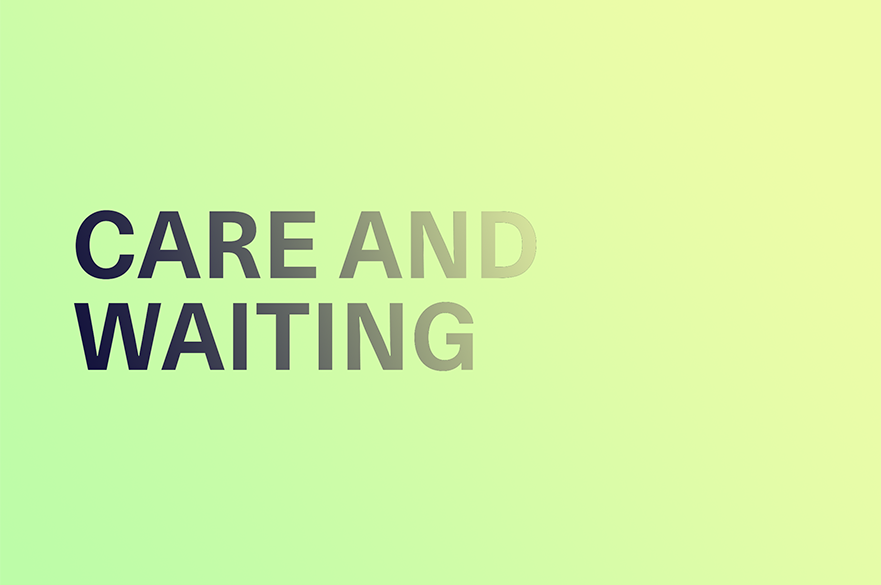
Artist and writer Marion Coutts is best known for her award-winning memoir The Iceberg, written in response to her husband’s diagnosis and eventual death from a brain tumour. In this online event, Marion speaks to Laura Salisbury, Professor of Modern Literature and Medical Humanities at the University of Exeter, about healthcare, waiting times and contemporary art, writing and thinking.
Find out more, including how to access the event livestream, on the Critical Poetics website.
This event is one in a series of free to attend, public events as part of the 2021 Critical Poetics Summer Schoolprogramme:
Friday 25 June — Care in the Time of COVID: Michael Rosen in Conversation
Monday 28 June — Care for the Stranded: Astrida Neimanis
Tuesday 29 June — Care and Waiting: Marion Coutts in Conversation with Laura Salisbury
Wednesday 30 June — Inter-species Care: Maya Chowdhry and Mama D Ujuaje in Conversation with Eva Giraud
Thursday 1 July — Troubling Care: Nat Raha, Bhanu Kapil and Raymond Antrobus
Friday 2 July — Freedom and Care: Maggie Nelson in Conversation with Seán Hewitt
Organised by the Critical Poetics Research Group at Nottingham Trent University (NTU) in partnership with Nottingham Contemporary and Curated & Created at NTU.
For more details and to register click here.
Dialogues on the time of Covid-19 Summer Series. Thursday 24th of June. Boredom – deprivations and emptiness in the pandemic.

Josh Cohen, psychoanalyst, Professor of Modern Literary Theory and author of “Not Working: Why We Have to Stop” and other books, will be in conversation with Laura Salisbury, Professor in Modern Literature and Medical Humanities, whose wide ranging publications include a book on Beckett and papers on waiting and who is working on the cultural history of waiting in modernity. The dialogue will be chaired by Trudy McGuinness, psychoanalyst.
June 24th, 2021 8:15 PM through 9:45 PM
London
United Kingdom
| Standard Ticket | £ 25.00 |
| Concession Ticket | £ 15.00 |
For more details and to register, click here.
Researching the Unconscious: The Essex Summer School in Psychosocial and Psychoanalytic Research Methods 04, 18, 25 June 2021
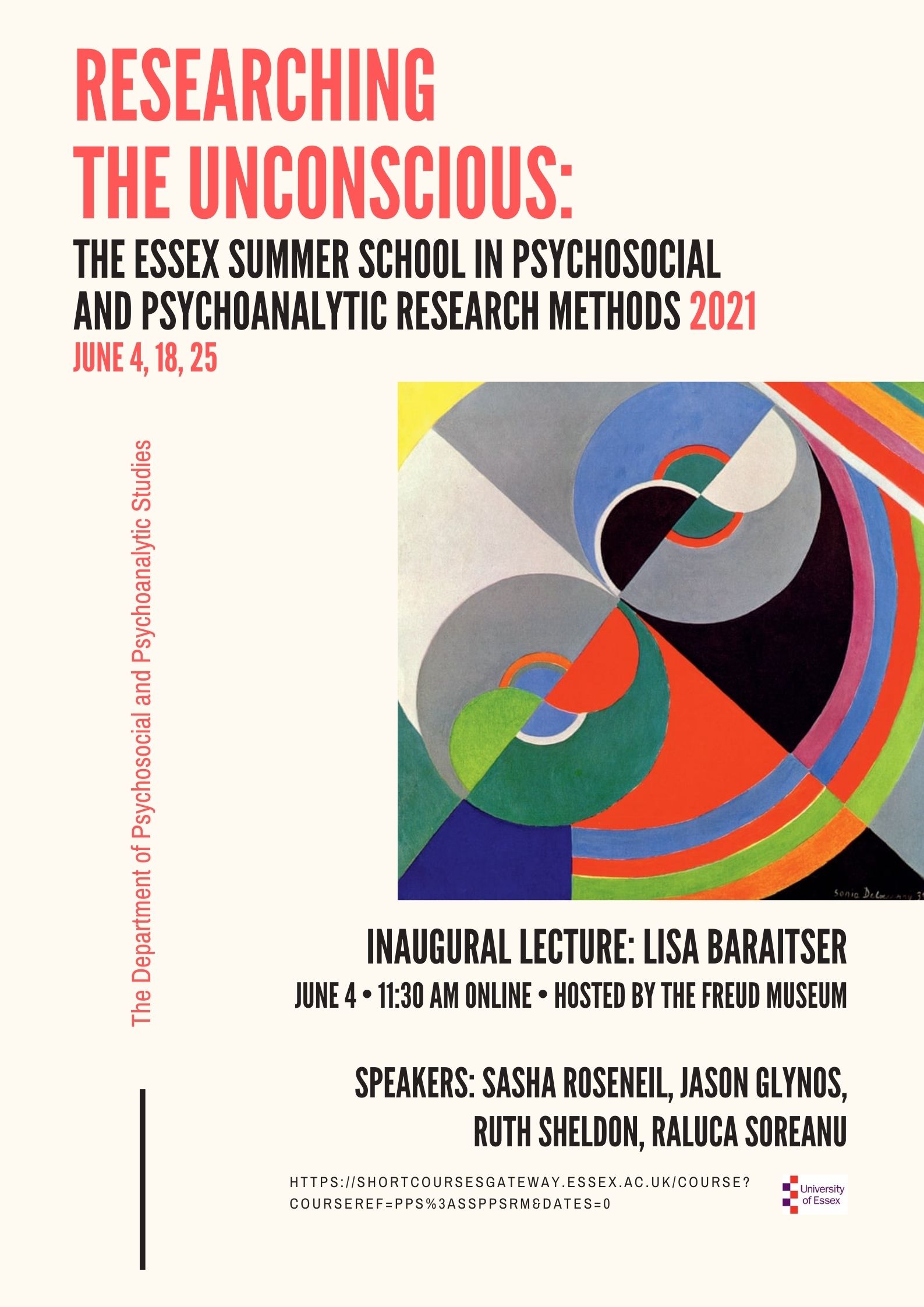
This summer school brings together experienced psychosocial researchers, who will teach you how they use psychosocial and psychoanalytic ideas and methodologies to conduct their research. Based on examples from their own research practice, you will learn how psychosocial approaches and psychoanalysis can help you construct your object of research, conduct your fieldwork, and interpret your findings.
In the inaugural lecture of the summer school, Prof Lisa Baraitser will discuss collaboration as a psychosocial method. She will address questions of research methods from the perspective of collaboration and the impossibility of working alone. Offering a psychosocial perspective on interdisciplinarity, she will show how we are dependent on others for making new knowledge, a process that is not necessarily harmonious, and can be full of archaic terrors that are played out and reworked as the research unfolds.
The four sessions of the course will be dedicated to interview methods, discourse analysis, psychosocial ethnography, and ethnographic reflexivity. Prof Sasha Roseneil’s session will be dedicated to the biographical-narrative interpretive method (BNIM) as psychosocial research method. Prof Jason Glynos will discuss discourse and fantasy, showing how the concept of fantasy can be ‘operationalised’ for purposes of critical empirical research. Dr Raluca Soreanu’s will discuss psychosocial ethnography, showing how to approach difficult research sites and how to ‘listen’ to psychosocial scenes. Dr Ruth Sheldon’s session will be dedicated to ethnography and its forms of reflexivity.
The Power of Sequential Narrative w/ Sarah Lippett and Lucy Sullivan
Saturday, 30 November, 3:30 – 6:30pm, Women’s Art Library (WAL), Goldsmiths University Library
Join graphic novelists Sarah Lippett and Lucy Sullivan for an afternoon of discussion on the power of sequential narrative for approaching the topic of illness, loss and physical and mental health. Hosted in the context of the Women’s Art Library (WAL), curator and lecturer Samantha Lippett will chair a debate, paying specific reference to Sarah’s latest Jonathan Cape published graphic memoir, A Puff of Smoke, that explores her experience of growing up with an undiagnosed rare disease and Lucy’s graphic novel Barking, that draws upon her experiences of mental illness following the loss of her father in her early twenties. Framed within the genre of graphic medicine, together they will consider the radical potential of books like these to discuss the life topics that are often too complex for words alone. Followed by a Q&A.
There will also be a temporary display of the books and associated ephemera that will later be donated to the Women’s Art Library archives. Both graphic novels will be available to buy and free drinks for all.
With thanks to special collections librarian, Althea Greenan.
FREE, booking recommended – please follow the link to book
A Puff of Smoke Talk and Workshop with author and artist Sarah Lippett
Date and Time: Fri, 22 November 2019, 13:30 – 14:30 GMT
Location: The Centre for Better Health, 1A Darnley Road, London, E9 6QH
FREE, but registration is required, please follow the link to register.
A Puff of Smoke (published by Jonathan Cape 7th November) is a graphic memoir about what it is like to grow up with an illness that no one can diagnose. Sarah Lippett spent eleven years suffering with symptoms from an unknown condition, until she was diagnosed with the rare disease Moyamoya at the age of 17.
For the month of November (1st – 29th November) an exhibition will be held at The Centre For Better Health that will explore the wider themes of the memoir.
Join Sarah as she talks through the process of revisiting her past and piecing it back together as a graphic memoir. The talk will be followed by a short workshop where participants are invited to create sequential narratives based on their own lived experiences. No drawing experience necesssary.
Read a recent Observer review of “A Puff of Smoke” book:
